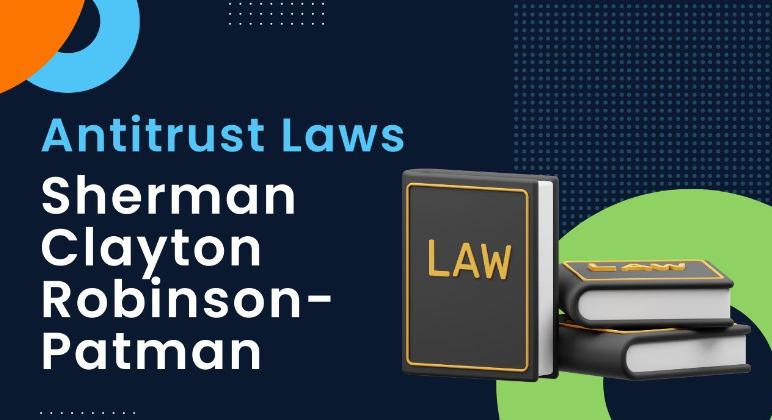Antitrust Laws and Regulations: Everything You Need To Know

Antitrust laws and regulations prevent anti-competitive practices and promote fair business. These rules safeguard consumer interests and encourage market efficiency.
Antitrust laws and regulations are crucial in maintaining an open and competitive marketplace. They are designed to prohibit businesses from engaging in practices restricting competition, such as price-fixing, monopolies, and other unfair trade practices. These rules ensure consumers have access to various goods and services at fair prices while fostering innovation by preventing market domination by a single entity.
By enforcing these regulations, governments aim to create an even playing field for all businesses, large and small. Complying with these laws is essential for companies to avoid legal repercussions, including significant fines, and to maintain a healthy economic environment conducive to growth and consumer trust.
Contents
- 1 The Genesis Of Antitrust Laws
- 2 Purpose And Scope Of Antitrust Legislation
- 3 Key Concepts In Antitrust Policies
- 4 Landmark Antitrust Cases
- 5 Enforcement Of Antitrust Laws
- 6 Global Perspectives On Corporate Power
- 7 Controversies Surrounding Antitrust Enforcement
- 8 The Future Of Antitrust Regulations
- 9 Conclusion
The Genesis Of Antitrust Laws
The Sherman Act of 1890 is a crucial U.S. law that started it all. It was designed to stop lousy business behaviours.
Trusts and monopolies were the main targets of this Act. They were seen to hurt fair competition. The government could sue companies to break them up.
Another important law is the Clayton Act of 1914. This Act made specific rules against lousy competition.
It said no to certain price discriminations, exclusive deals, and buying stocks. These could lead to less competition.
The last piece is the Federal Trade Commission Act. This created the Federal Trade Commission (FTC).
The FTC’s role is to protect consumers and ensure a robust competitive market. They can investigate and stop unfair business practices.
Purpose And Scope Of Antitrust Legislation
The purpose of antitrust laws is clear: They ensure that no single company controls a market. Preventing monopolies is key. Monopolies can harm both competitors and consumers. By stopping them, there is more fair play in business.
Promoting competition is another primary goal. It helps businesses innovate and grow fairly. A competitive market leads to better products and prices, suitable for everyone who buys things—like you and your family.
Lastly, these laws protect consumers. With more choices, you can find better deals. Companies cannot fix prices or give low-quality goods. You get to pick from the best options out there. This is how antitrust laws keep your interests safe.
Key Concepts In Antitrust Policies
Antitrust laws aim to keep markets fair and competitive. Monopolistic practices occur when one company controls a market alone, hurting others. Firms may engage in price fixing schemes, where companies make secret deals to set high prices. This blocks fair pricing and choice, damaging both competitors and consumers.
Another illegal act is market allocation, in which businesses divide markets and agree not to compete in certain areas, creating mini-monopolies. Bid rigging is also against the law. Companies conspire to fix the outcome of bids, ensuring a particular firm wins a contract at an inflated price.
These practices harm the economy by reducing competition. Less competition means higher prices and fewer options for everyone. Such behaviour breaks antitrust rules to protect consumers, businesses, and the market’s health.
Landmark Antitrust Cases
The Breakup of Standard Oil marked a pivotal moment in antitrust history. The company controlled about 90% of oil refineries in the U.S. It was considered an illegal monopoly. In 1911, the Supreme Court ruled to break it into 34 smaller companies. This decision set a precedent for future antitrust cases.
The AOL-Time Warner Merger in 2000 became one of the largest mergers ever. It combined old media with new tech, but it did not produce the expected results. Critics argue it failed to benefit consumers and stifled competition.
The United States vs. Microsoft Corp. case focused on the tech giant’s dominance in the PC market. The government argued that Microsoft was making it hard for others to compete. In 2001, the court ruled that Microsoft had broken the law by mixing its Windows operating system with its web browser.
Enforcement Of Antitrust Laws
The Department of Justice (DOJ) plays a key role in enforcing antitrust laws. It scrutinizes mergers and acquisitions, ensuring fair competition. Its decisions can block deals that harm the market. The DOJ also prosecutes criminal antitrust violations, like price-fixing.
The Federal Trade Commission (FTC) works to prevent deceptive business practices. They investigate complaints against companies and push for consumer rights. Preserving competitive markets is central to their function.
| Agency | Function |
| DOJ | Review and challenge mergers |
| FTC | Stop unfair practices |
Both agencies work with partners abroad. They aim to harmonize antitrust enforcement globally, which helps manage issues arising from international trade and transnational corporations.
Global Perspectives On Corporate Power
European Union (EU) laws are strict about business competition. Firms can’t fix prices or limit production unfairly. The European Commission checks these activities tightly. Heavy fines are set for lawbreakers, keeping businesses competitive and fair.
Asia’s antimonopoly rules also play a big part. Countries like China and Japan have laws to stop big companies from controlling markets. These rules promote small business growth and innovation.
Companies sometimes work across borders. They must follow international rules, too. Cross-border partnerships and mergers need a check to ensure they don’t hurt competition. Global agencies often help in this process.
Controversies Surrounding Antitrust Enforcement
Tech Giants under Scrutiny often raise questions about fair competition. Major companies like Google, Amazon, and Facebook face intense investigations into their business practices. These firms could control markets, limiting consumers’ choices. Their size and power mean smaller competitors need help to survive.
Pharmaceutical Industry Complaints also garner attention. Drug makers’ pricing strategies lead to public outrage. Exclusive patents can block cheaper, generic medicines, impacting affordability.
Lobbying and Politics play significant roles in shaping antitrust laws. Industry giants spend millions to influence legislation. This money can sway political decisions, potentially affecting the enforcement of antitrust measures.
The Future Of Antitrust Regulations
The world of antitrust laws is rapidly evolving due to the rise of digital marketplaces. Traditional regulations need to keep pace with the speed of online transactions and the dominance of tech giants. To ensure fair competition, new measures are being considered.
Emerging economic models, like the sharing economy and subscription services, present unique challenges. Policymakers are debating whether traditional economic theories apply to these innovative structures and exploring policies tailored to digital ecosystems.
International cooperation among regulatory bodies is essential for a cohesive approach to antitrust enforcement. A unified strategy could lead to more effective regulation as these markets transcend borders. This cooperative spirit aims to address antitrust challenges in the global digital economy for global oligopolies.
Conclusion
Understanding antitrust laws is crucial for fair market competition. They preserve consumer rights and encourage innovation. By complying with these regulations, companies can avoid legal pitfalls and thrive. Keep informed on updates to these laws to ensure business practices remain compliant and competitive.



